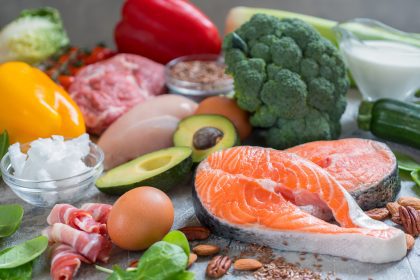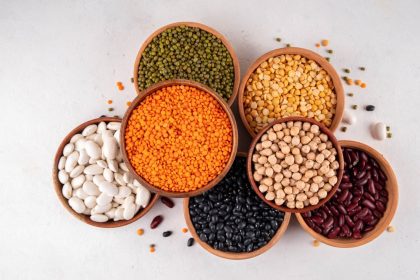How everyday dietary choices silently fuel chronic disease
The human body’s inflammatory response functions as an intricate defense system, protecting against injury and infection. However, contemporary eating habits have transformed this protective mechanism into a persistent health hazard. While acute inflammation aids wound healing, prolonged inflammation becomes a destructive force that damages healthy tissues and organs.
This chronic inflammatory state operates covertly for years, gradually compromising cardiovascular health, cognitive function and metabolic processes without manifesting obvious symptoms until severe diseases emerge. The silent threat affects millions of Americans who unknowingly consume inflammatory foods daily, fostering internal conditions that encourage heart disease, diabetes, cancer and premature aging.
Many inflammation-promoting foods disguise themselves as convenient, flavorful options that integrate seamlessly into hectic lifestyles. Recognizing which dietary decisions promote inflammation enables people to make educated choices that can substantially reduce chronic disease risk while potentially reversing existing inflammatory damage.
The Inflammation-Disease Connection
Chronic inflammation generates a toxic internal environment that damages blood vessels, disrupts cellular function and accelerates aging processes. This persistent condition increases production of harmful compounds that interfere with insulin sensitivity, promote abnormal cell growth and weaken immune system capacity.
The cardiovascular system endures much of inflammation’s destructive impact, with chronic processes contributing to atherosclerosis, blood clot formation and heart rhythm abnormalities. Brain health suffers significantly, with inflammatory processes contributing to cognitive decline, depression and neurodegenerative diseases.
Metabolic dysfunction develops as chronic inflammation interferes with insulin signaling pathways, promoting insulin resistance and increasing type 2 diabetes risk. Inflammatory compounds also disrupt normal appetite regulation and energy metabolism, contributing to weight gain and difficulty maintaining healthy body composition.
Sugary Foods Create Inflammatory Cascades
Added sugars represent one of the most potent dietary triggers of chronic inflammation, creating rapid spikes in blood glucose that stress multiple body systems simultaneously. Regular consumption of sodas, candy, pastries and sweetened beverages floods the bloodstream with glucose that overwhelms cellular processing capacity and promotes inflammatory compound formation.
High sugar intake disrupts the delicate balance of beneficial bacteria in the digestive system, allowing harmful bacterial strains to proliferate and produce inflammatory toxins that enter the bloodstream. This gut inflammation spreads throughout the body, affecting organs and tissues far from the digestive tract.
Fructose, particularly in high concentrations found in processed foods and beverages, produces especially potent inflammatory effects by overwhelming liver processing capacity and promoting the formation of advanced glycation end products that damage proteins throughout the body.
Processed Foods Amplify Inflammatory Responses
Industrial food processing removes beneficial nutrients while concentrating inflammatory compounds, creating products that actively promote chronic inflammation. These foods often combine multiple inflammatory triggers including refined sugars, unhealthy fats and chemical additives that work synergistically.
Refined grains found in processed foods lack the fiber and nutrients present in whole grains, causing rapid glucose absorption that triggers inflammatory responses similar to pure sugar consumption. Trans fats and heavily processed vegetable oils commonly found in packaged foods create particularly dangerous inflammatory conditions by altering cell membrane composition.
Chemical preservatives, artificial colors and flavor enhancers added to processed foods can trigger inflammatory responses in sensitive individuals while potentially disrupting normal immune system function.
Red Meat and Fried Foods Fuel Inflammation
Regular consumption of red meat, particularly when grilled, barbecued or processed into products like bacon and hot dogs, significantly increases inflammatory marker levels in the bloodstream. The cooking methods commonly used for red meat create compounds called advanced glycation end products and heterocyclic amines that directly promote inflammation.
Processed meats contain high levels of sodium, nitrates and other preservatives that contribute to inflammatory processes while often lacking the beneficial nutrients found in fresh, unprocessed proteins. The saturated fat content of red meat can contribute to inflammatory processes, particularly when consumed regularly as part of diets low in anti-inflammatory nutrients.
Deep-frying and high-temperature cooking methods create harmful compounds that directly promote inflammation and oxidative stress throughout the body. French fries, fried chicken and other popular fried foods contain acrylamide, advanced glycation end products and oxidized fats that trigger inflammatory responses and damage cellular structures.
The oils used for commercial frying often undergo repeated heating cycles that create increasingly toxic compounds with each use. These degraded oils contain high concentrations of inflammatory substances that accumulate in body tissues and promote chronic inflammatory conditions.
Anti-Inflammatory Alternatives and Solutions
Replacing inflammatory foods with anti-inflammatory alternatives can dramatically reduce chronic inflammation levels while providing superior nutrition. Colorful fruits and vegetables contain powerful antioxidants and phytonutrients that actively combat inflammatory processes while supporting overall health.
Berries stand out as particularly potent anti-inflammatory foods, providing anthocyanins and other compounds that reduce inflammatory marker levels while supporting cardiovascular and brain health. Leafy green vegetables like spinach, kale and arugula provide nutrients that support the body’s natural anti-inflammatory processes.
Fatty fish including salmon, sardines and mackerel provide omega-3 fatty acids that actively reduce inflammation while supporting heart and brain health. These healthy fats can help counteract the inflammatory effects of other dietary components when consumed regularly.
Herbs and spices offer powerful anti-inflammatory medicine. Turmeric contains curcumin, a compound with potent anti-inflammatory properties that may rival pharmaceutical anti-inflammatory drugs in effectiveness without the associated side effects. Ginger offers anti-inflammatory compounds that can help reduce systemic inflammation while supporting digestive health.
Healthy fats from sources like olive oil, avocados and nuts provide anti-inflammatory effects while supporting cardiovascular health and nutrient absorption. Extra virgin olive oil contains compounds that produce anti-inflammatory effects similar to low-dose aspirin when consumed regularly.
Whole grains provide fiber, B vitamins and other nutrients that support beneficial gut bacteria populations while providing steady energy without the blood sugar spikes associated with refined grains. Oats, quinoa and brown rice offer versatile alternatives to inflammatory refined grain products.
Creating Sustainable Change
Transitioning from inflammatory to anti-inflammatory eating patterns requires gradual changes that can be maintained long-term rather than dramatic overhauls that may prove unsustainable. Starting with small substitutions and gradually expanding anti-inflammatory food choices increases the likelihood of lasting dietary improvements.
Meal planning and preparation help ensure consistent access to anti-inflammatory foods while reducing reliance on convenient but inflammatory processed options. Regular physical activity enhances the anti-inflammatory effects of healthy dietary choices while independently reducing chronic inflammation levels.
Stress management techniques including meditation, yoga and adequate sleep support the body’s natural anti-inflammatory processes while preventing stress-induced inflammatory responses. Understanding which foods fuel chronic inflammation provides the foundation for making dietary choices that support long-term health and vitality.















